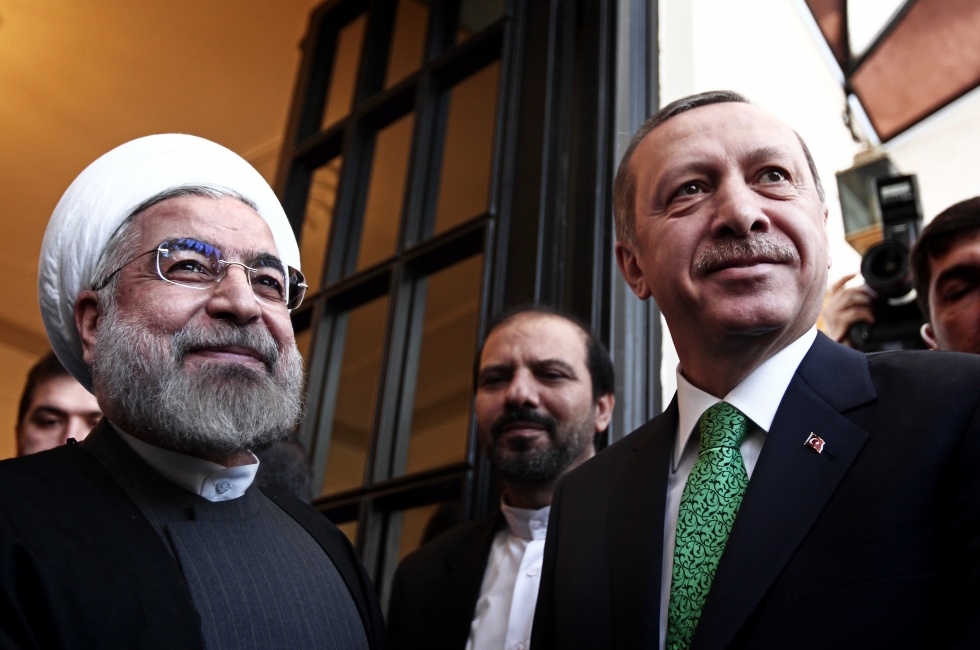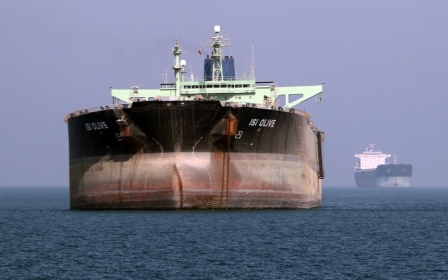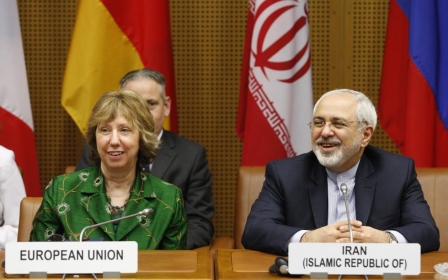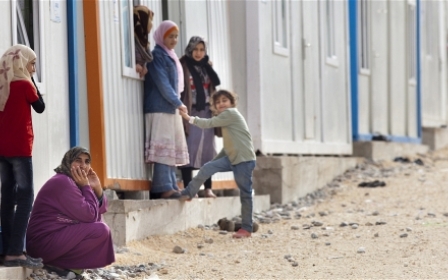Iran president in landmark visit to Turkey to renew ties

Iran's president begins a landmark trip to Turkey on Monday as the two countries try to build trade ties despite an often fraught competition for regional influence and deep differences over the Syrian war.
Iranian President Hassan Rouhani will meet his Turkish counterpart Abdullah Gul and Prime Minister Recep Tayyip Erdogan in Ankara, where the powerful neighbours are expected to discuss security concerns as well as trade opportunities.
The two sides have had a complex and often dysfunctional relationship, which has taken an especially bitter turn in recent years as a result of increasing competition between Sunni and Shiite Muslim powers across the region.
This has become more pronounced following the onset of the Syrian war, in which the two have found themselves on opposite sides.
Iran, a Shiite theocracy, is the chief backer of Syrian President Bashar al-Assad, while Sunni-majority Turkey has moved from trying to encourage reform in Syria to overtly supporting the armed opposition.
The two also compete for influence in Iraq, Central Asia and the Caucasus.
Even on areas where they might be thought to cooperate - such as Kurdish separatism - they have often sought to undermine each other.
Both Turkey and Iran face a threat from Kurdish rebels who wish to break away and form their own country.
But instead of cooperating, the two governments have sponsored rebels in the others' backyard over the years.
In 2012, Turkish media reported government claims that more than 100 Iranian agents were active in Turkey, working on behalf of the Kurdistan Worker's Party (PKK) - a Kurdish rebel group that calls for Kurdish autonomy.
"We have agreements as well as disagreements," was the summation of the Iranian embassy spokesman in Ankara last week.
Energy and trade deals
Despite the tensions, the two sides have many reasons to work together.
Both are concerned about the rise of radical militancy near their borders. They also share an aim to maintain their close energy and trade ties that have been threatened by Western sanctions targeting Iran.
Rouhani, is to meet his Turkish counterpart, President Abdullah Gul and Prime Minister Recep Tayyip Erdogan. He will be flanked by a crowded delegation of ministers, with at least six cooperation deals due to be struck.
Iran and Turkey will also chair the first meeting of a high-level cooperation council, a mechanism Ankara has established with its neighbours to promote trade and regional integration.
On a visit to Tehran in January, Erdogan said the two countries were aiming to more than double trade to $30 billion (22 billion euro) by 2015.
Turkey is also heavily reliant on Iran for oil and gas, having few energy resources of its own.
It has been a fierce opponent of Western sanctions that have severely curtailed access to Iranian fuel in recent years.
Ankara has been accused of circumventing the sanctions by quietly trading gold for Iranian gas.
Erdogan hopes Iran will be able to forge a diplomatic deal with the West over its nuclear programme by the deadline of 20 July that would see sanctions – temporarily suspended since an interim deal was signed November 2013 - dropped permanently.
EU foreign affairs chief Catherine Ashton and Iranian Foreign Minister Mohammad Javad Zarif met in Istanbul last month to discuss the next steps towards a final agreement. Another round of talks is scheduled in Vienna for mid-June.
"We always look positively to Turkey hosting nuclear talks," the Iranian diplomat told AFP, saying that the course of negotiations with Tehran and world powers would be shared with Turkish officials.
Ankara has long defended Tehran's right to peaceful nuclear technology but adamantly opposes any development of nuclear weapons in the Middle East.
The last official presidential visit from Iran to Turkey was in 1996 by Hashemi Rafsanjani.
That visit was marked by controversy when Rafsanjani refused to visit the mausoleum of modern Turkey's revered founder Mustafa Kemal Ataturk - a routine practice for foreign heads of state. Rouhani is also expected to skip the mausoleum.
Similarly, Turkey's president refused to visit the tomb of Iranian revolutionary leader Ruhollah Khomeini during a visit last year.
Middle East Eye propose une couverture et une analyse indépendantes et incomparables du Moyen-Orient, de l’Afrique du Nord et d’autres régions du monde. Pour en savoir plus sur la reprise de ce contenu et les frais qui s’appliquent, veuillez remplir ce formulaire [en anglais]. Pour en savoir plus sur MEE, cliquez ici [en anglais].




